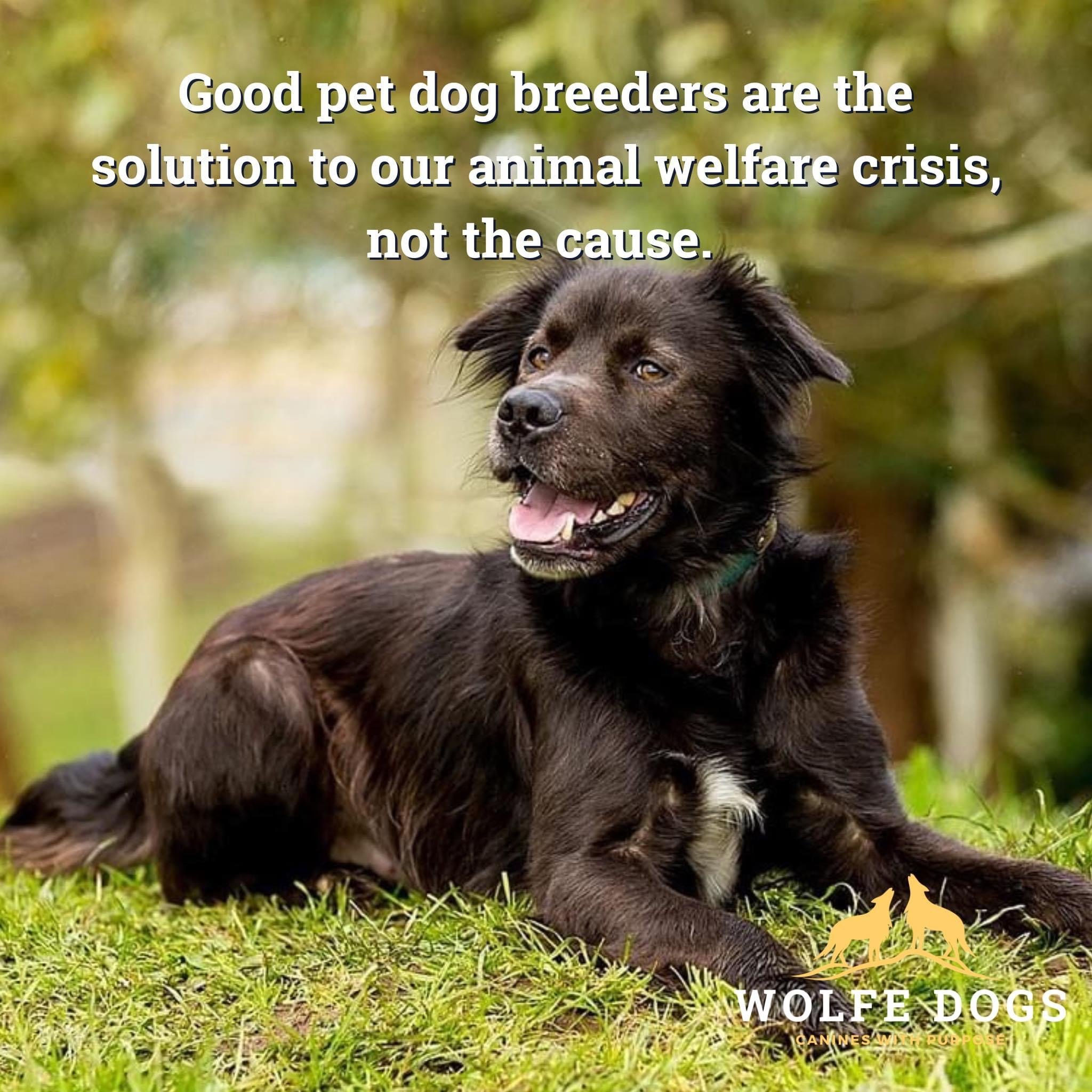Good pet dog breeders are the solution to our animal welfare crisis
What if I told you the BEST thing we can do for animal welfare long term is to support ethical breeding of true pet dogs?
The majority of behavioural issues are some combination of dogs not fitting into their environment. We are taking dogs bred to work, hunt, herd etc for hours at a time and saying “hey mate - here’s a comfy bed, two good meals a day, two 30 minute leash walks at human pace each day and a whole lot of love. Why are you not happy? Why are you getting up to mischief? Do you know how good you’ve got it?”
🧬 Because while their basic needs may be met, their greater genetic needs we have selected them for are often not. Their genes are crying out for the work they’ve been developed for.
Now, we can offer alternative outlets in many ways, and I love working with clients to do this - things like tug, obedience, herding games with flirt poles, scent games, sports, getting out in nature for decompression time can all help fulfil our dogs in our pet homes. Some of us really enjoy putting the work into that and bonding with our pet working dogs in that way. They can live great, fulfilled lives with that work put in, even in pet homes.
But realistically, this isn’t something that fits every home. Whether that’s due to time constraints, physical restrictions or even just what you want out of life with a dog. And it’s 100% okay to recognise that. Dog ownership isn’t meant to be a miserable chore you do out of obligation.
What’s not okay though, is expecting a square peg to fit into a round hole and just be okay with it. If we cannot provide the lifestyle a high energy dog who wants to work needs, it’s unfair to expect them to just stop having a problem with it and behave (even though training is very very important!). Or to expect a prospective owner who really just wants and needs that chill stroll around the block, couple of ball throws then hang on the couch dog and handing them a high drive pig dog or bully mix or handy dog pup off a farm and expecting that to end well. It might save a physical life in the short term, but it’s killing dogs in the long term.
🌟 Instead we should be mapping out what you want in a dog, and seeking that out. And that’s where our good (emphasis on the good) pet breeders come in. 🌟
✅ Breeding dogs who truly fit and thrive in those lifestyles, not just squish into shape to survive. Sometimes these will be pedigrees, some might be mixed breeds (cavoodles being a great example when done well).
✅ Doing the health testing to ensure these dogs are healthy for the long run.
✅ Doing the temperament selection, socialisation and early work to raise the physically and mentally healthiest puppies.
✅ Matching puppies to suitable homes and offering support if they ever need to be returned so they don’t end up in shelters.
The more we get this piece right, the fewer dogs we will see struggling in pet homes. Being surrendered to overflowing shelters and rescues to deal with when it becomes too much. Being medicated just to cope with an unfulfilled, mismatched life.
But if we want this to happen, we need to create space for these breeders doing things right and stop villainising them as a whole. Recognising that they are just as important for long term animal welfare as shelters and rescues. Setting up systems to ensure people can more easily find the dog that will genuinely suit their needs, including from good breeders who are genuinely doing things properly. And encouraging people to go get the dog that will actually thrive in their home, rather than shaming them into taking dogs that will always be a compromise for the next 15 years.
We’ve done the ambulance at the bottom of the cliff rescue approach for years (myself included) - as a result we have more dogs in shelters, and more behavioural issues than ever before. To really see change we need to look at where the pet dogs are coming from instead of just moving the problem around.
__
Pictured - one of my many foster dogs who came to me because he most certainly was not content in that pet lifestyle.

